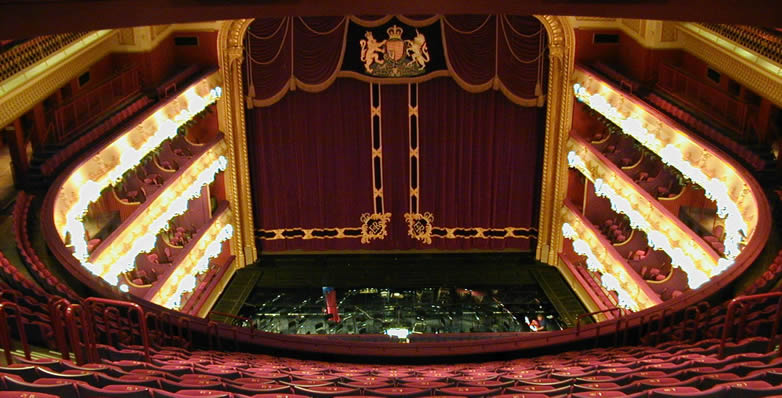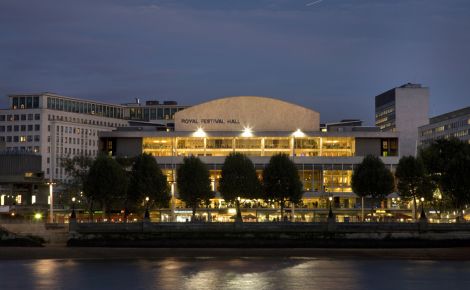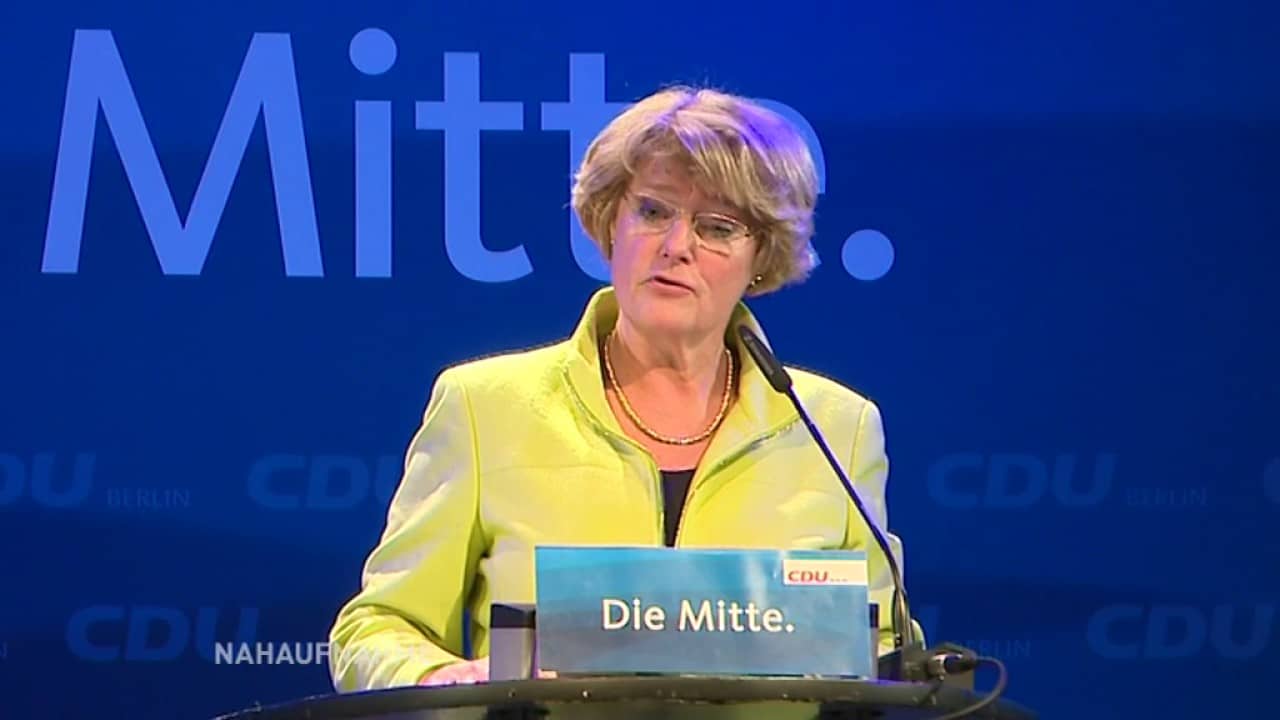May 1982, Royal Festival Hall.
I couldn’t get a ticket.

May 1982, Royal Festival Hall.
I couldn’t get a ticket.

From our colleagues at Diapason:
Dijon Opera was at the forefront, the first in France to offer public concerts, from June 17, as part of the Dissonances Chamber Music Series, a festival curated by the violinist David Grimal and the pianist Philippe Cassard. All precautions were taken: of 1,611 seats in the auditorium, only 150 were occupied.
But one case of Covid-19 was diagnosed on June 20 (he is said to be a famous cellist). All further concerts have now been cancelled.
More here.

Philip Cobb, who became Joint-Principal Trumpet of the London Symphony Orchestra in 2009 at just 21, has quit to join the BBC Symphony Orchestra.
He says: ‘I’m delighted to have been appointed to the BBC SO. I can’t wait to get back to making music with the members of the orchestra and begin preparations for a wide range of future performances and projects.’
The BBC offers a monthly salary. LSO players are self-employed and extremely anxious in Covid shutdown.

The Dallas Symphony Orchestra is deeply saddened by the passing of Principal Trumpet Emeritus and great friend Ryan Anthony.
Ryan, who was 49 or 50, had been fighting a rare form of blood and bone-marrow cancer since 2012. He joined the orchestra in 2004 and was named principal in 2008. He stepped back and was named principal trumpet emeritus in June 2019.

The Omaha Symphony has chosen Ankush Kumar Bahl as its next music director, starting in 2021-2022 for an unusually long seven-year term. The deal was negotiated by Columbia Artists.
Bahl, who is US born and of Indian origin, has been an assistant to Jaap van Zweden at the New York Philharmonic. Before that, he assisted Christoph Eschenbach in Washington DC.
He is 43 years old.

And before anyone asks, why the headline? Because it’s so damned unusual for a US orch to go non-white.
Another letter today from 70 heads of arts institutions:
Sir, The performing arts are battling for survival at a time when theatre matters more than ever. It is not only the West End, the panto, world-class musicals, dance, opera and Shakespeare, it is the creative and outreach work happening around the country in our diverse communities, outdoors, in pop-up spaces, at festivals and online. Theatre tackles contemporary issues head on. With Black Lives Matter stirring our national consciousness, theatre can play a critical role in challenging, educating and informing people.
Theatre is a national success story, vital to Britain’s economic prosperity. It attracted 34 million visitors last year, employs 300,000 people, promotes tourism and generates huge tax revenues, including VAT of £130 million in London alone.
Our industry depends on the £1.3 billion of annual ticket sales that has now disppeared…
The rest you have read before in previous weekly letters of this kind.

When Creative director Madani Younis disappeared from the South Bank after less than a year, there were plenty who doubted the arts centre’s commitment to diversity. Madani went on to be appointed chief executive producer of New York’s Shed.
Now staff at the South Bank have leaked us a letter they have sent to their leadership, specifically to Elaine Bedell, Laura Popazzi, The Executive Team, The Hayward Management and Senior Management Team, The VE Management and Senior Management Team, the Ticketing and Membership Management and Senior Management Team and the Retail Management Team.
The staff state:
We are writing to start a conversation with you about structural racism within all institutions, and
within the Southbank Centre specifically.
We were pleased to receive your email on 4th June in which you expressed a desire to open the
channels of communication across all levels of the organisation in order to address current
issues faced by employees within the Southbank Centre, and push for change. We feel that now
is the right time to come together and begin that conversation with you. We hope this can be the
start of an open dialogue where we share ideas on how we can implement immediate, long term
and permanant anti-racist strategy and protocol.
In this letter, we will highlight some of the concerns that have been raised by staff in relation to
racial discrimination institutional and structural racism. We will also set out a list of key areas
that we as employees feel need to change. However, this list is by no means exhaustive, it is
only a starting point. We hope that you will take the time to read our suggestions and concerns,
and that together we can create change within our organisation and lead by example within the
arts industry.
Sharing messages of support for the Black Lives Matter movement on social media platforms,
although an important show of solidarity, is meaningless if not backed by action. We are worried
that these posts are examples of optical allyship and we want to ensure that this will not be the
case at the Southbank Centre.
A key element of the Southbank Centre’s ethos is diversity and inclusion, however, there are
cases in which these words are not being put into action internally, and are only used to tick
boxes.
Firstly we would like to bring to your attention some key points that were raised by staff across
all our venues: the Hayward Hosts, the Visitor Experience Team, the Ticketing and Membership
Team and the Retail Team.
Across all venues:
● The lack of People of Colour in positions of power and higher income positions within the
organisation. This is a stark difference to our front of house VE teams. We feel the image
of the Southbank Centre community that we are presenting to the public is not reflected
within the teams higher up in the organisation. For example, the Hayward Gallery has an
all-white managerial team and there are no Black staff with full time positions in the
curatorial team. Having no or few People of Colour in these roles sends an implicit
message that this is not an accessible career progression for BAME employees of the
Southbank Centre.
● There is very little opportunity for career progression. The opportunity for extra training
and to move up within the organisation is often mentioned as a positive part of working
for the Southbank Centre, however, we are concerned that these opportunities are rarely
made available to those whose roles are lower paid positions. As we have stated there is
a much higher percentage of People of Colour in these teams and therefore this is an
area where the Southbank centre does not support and actively hinders People of
Colour.
● Minoritised people are treated as a homogeneous group. There is not equal
representation across artistic programming and in higher-paid positions. For example
Asian people are more likely to be hired in higher-paying roles at the Southbank Centre
when Black people are not equally represented or supported. This is not diverse and
inclusive and hints at a ‘tick box’ mentality.
● During the year that the Southbank Centre programmed Black centred events like Africa
Utopia, Alchemy was cancelled and was not replaced with any South Asian focussed
programming. It should not be one or the other.
● Senior management and executive teams are not required to complete a comprehensive
level of diversity training. As employees who are predominantly in front of house
positions, we are expected to complete diversity training. We expect as a minimum that
this is compulsory for all staff at the Southbank Centre and would hope that our
managers and executive teams would be engaging in even more in-depth and detailed
diversity training so that they can better support People of Colour within their teams and
be a part of making the Southbank Centre an actively anti-racist institution. Currently,
instances of racist abuse between colleagues and from the public have not been dealt
with by managers in any meaningful way. Employees have felt that they have been
ignored or gaslighted when bringing the issue to their managers. This could be avoided if
the correct training was in place.
● Diversity training that is in place is minimal and does not aim to truly educate people.
This training focuses on inclusion, there is no investment in anti – racist education and no
attempt to eradicate unconscious bias.
● Development opportunities are not accessible at the Southbank Centre. People of
Colour are less likely to make it past the selection stages for these opportunities. These
selection processes are flawed and actively hinder the career progression of BAME
employees.
● There is a lack of mental health support specifically for racial issues. Due to many of the
factors stated in this letter, BAME employees do not feel comfortable going through the
current system of management or the wellbeing team to ask for support. We recognise
that efforts have been made to put these support networks in place, but all initiatives
have been ineffective so far, and like many initiatives across the site, have been
supported as an idea but not as an action.
● The security team, catering team and cleaning team at the Southbank Centre are not
employed in-house but through agencies. The agency used for our security teams, as
with many businesses, has faced difficulties due to the COVID-19 pandemic. As a result
of this, security staff, many of whom have been working for the Southbank Centre for
many years, may face redundancies. These job losses would disproportionately affect
People of Colour.
● Initiatives like the mental health network and the recently introduced BAME network do
not effectively create safe spaces and support People of Colour within our organisation.
Run by managers and HR, these groups underline the problematic hierarchical order
that permeates the Southbank Centre. It is a concern that the current systems in place to
support BAME employees can feel like a tool for surveillance and control rather than
empowerment. This lack of support negatively affects the mental and physical health of
these employees.
● There were several comments in response to the Southbank Centre’s “Blackout
Tuesday” Instagram post, from employees and ex-employees that mention having to
work on shows that contained racist content. Shows and events that were programmed
by the Southbank Centre or allowed to hire space at the Southbank Centre. You need to
review your programming practice to ensure that such events never return to the
Southbank Centre and offer apologies to all staff who had to experience working on such
events. Especially those who raised the issue with management and were ignored.
● The Diversity and inclusion Manager at the Southbank Centre is white.
Hayward Gallery:
● Tour Guiding is in our contracts as Hayward Hosts as a key element of our role. In
practice, it is presented as a development opportunity, open to all who want to engage
with it. However, there have been instances in which BAME members of the host team
have expressed a keen interest and enthusiasm for the role only to be turned away, with
no support or training offered to help develop skills for future tour guiding opportunities.
Including instances when the host has valuable, lived experience that is directly relevant
to the artist and exhibition.
● In 2019 a Black member of the host team lost their job due to absence. Their absence
was related to ongoing health issues that management was aware of. Previously, a white
host received an extension to their probation after significant absence due to health, but
the same support was not offered to the Black host.
● Across our exhibitions, many of which boast over 30 artists, the representation of Black
artists is minimal. This lack of support for Black artists is not only a direct contradiction of
the Southbank Centre’s diverse ethos, but is also detrimental to Black employees.
● There was no extra training given to staff in relation to the Kader Attia exhibition. This
exhibition was centred on colonialism and specifically healing from its effects. The
Southbank Centre is a significant cultural venue in the UK which has an extensive
colonial history, with this in mind staff should have been equipped with research and
knowledge through mandatory paid training. This lack of training left many staff members
feeling unprepared when speaking with visitors about the themes of the work, this was a
missed opportunity for the Southbank Centre to educate staff and subsequently visitors
about the topic.
There is more, much more, but this ought to set the ball rolling. Maybe even a few heads.
The complaints are absolutely valid. There is no trace of diversity in the leadership of the public-funded South Bank.

In the July-August issue of The Critic magazine, I have shared some thoughts on what composers do in their summer break.
Standing on the balcony at the Grand Hotel, Eastbourne, where Claude Debussy finished off La Mer, it struck me that composers come in two seasons — winter and summer. The winter sloggers chip away come sleet, come shine… Tchaikovsky was a winter symphonist. In summer, he lounged around his dacha or took a cultural tour of Europe. Stravinsky, by contrast, was a summer man, creating the white-nights Firebird in Rimsky-Korsakov’s dacha and posing stark-willy naked for a camera outside his banya, on the river jetty. …Summer composers start with Beethoven…
Read on here.

The national tour by Gautier Capucon – free to audiences but initially at high fees – has provoked a manifesto of outrage from a group of French fellow-musicians who fear that Capucon us exploiting his fame at their expense.
Here’s what they say:
SHARE WITHOUT MODERATION
Open letter to GAUTIER CAPUÇON
Mr. Capuçon, would you just be a liar?
Liar? Come on!
To support this hypothesis (because it’s just an assumption, of course), allow us to report some facts:
on May 25th, about your tour “A summer in France”, an article from the Parisian mentioned:
“I’ll just ask the municipalities for a little stamp – for the principle that every artist needs to be paid – and support for logistic costs, but it’s not an opportunistic and commercial operation”
On social media, the miserable plebs we are and who must settle for 100 € the 3-hour service, daring to ask (not out of malice, but out of curiosity) of the amount of this ” Little stamp “.
The answer came to him by an article from the musician’s letter on June 06 And for the whole profession, when these amounts of these “little pills” were published, it was a shock.
Because this is public money, from our taxes.
” € 2800 for cities with less than 3000 inhabitants, 4800 euros for cities between 3000 and 10 000, 7800 euros for cities between 10 000 and 60 000 inhabitants and 9800 euros for cities with more than 60 inhabitants. A stamp to add the accommodation costs for the artist and his family.”
In the face of what was seen as indecent requests during this time of crisis, you quickly turned back and announced no charge at all and even, supreme self-sacrifice, to take care of all your costs.
Ah, that’s a posture that makes you look like a saint!
Wonderful! What a great soul this man!
But, what a bad luck, it goes in absolute conflict with your statement at Le Figaro of May 27:
Because ” after all the free performances that musicians have been able to perform in the lockdown, it is important, symbolically, to remember that a musician must also touch something if he plays for an audience.”
Between asking for the amounts of public money you were asking for in the first place, and playing for free and at your expense, wasn’t there a fair place to find?
Would you reduce your salary claims to the same level as your colleagues, we would have you all
applauded with both hands.
Because it is there too, the solidarity that you are grateful for.
But by offering your services, in such a media “sacrificial” and suddenly selfless, you thought you had done an act of greatness and generosity when you were just looking for a very embarrassing situation.
No one can blame you for it, of course.
But first of all, you shot a bullet in the foot of an already damaged profession.
Because you’ve probably forgotten that we don’t have the means to display such a great “generosity” by offering to play for free.
What will stop, a municipality from now telling musicians who will try to get a little € 400 or € 500 for a recital.
” But Mr. Gautier Capuçon comes to play for free and you dare to ask for a stamp??? ”
Unfortunately, this is the precedent you just created!
So what do you want to say:
“I understand that some are disappointed but I regret this lack of solidarity between artists” seems to us, in these circumstances, somewhat wrong and even totally indecent.
But we have to forgive ourselves: for months, all our concerts, all our festivals are canceled, our stomachs are empty and we see evil everywhere.
But let’s come back to your statements: here you are at the microphone of Europe 1, on June 09th where you declare:
” These numbers are not pills, they are transfer contracts, it’s important to specify it.
“The information is absolutely wrong”
” An assignment contract is a contract that’s what costs the communities and therefore in this contract of assignment, there were several things, there are a fee, there were the pianist’s pills and mine… There you are, so they’re not pills “.
But Zounds, we are far, far from the modest ” participation in the stamp ” and ” support for logistic costs ” from the beginning. Because here is in your speech, the miraculous appearance of a “transfer contract” that includes the pianist’s pills (it’s new), yours and fees etc.
Don’t you know, recently, in the article of the 25th of May du Parisian that the stamp and the fees were two different accounts?
With such confusion, a cat would not find his little ones.
But here you are still on the set of “It’s yours” on June 10th, where we could even hear in your mouth:
” There was an amalgam, a bad understanding of things…”
Come on, Mr. Capuçon, we are wondering if your way of counting (and above all to redo history…) is not a bit capricious, not to say a little dishonest.
Or, full of bad luck, are your communication advisors who are to blame?
Let’s cut their heads off!
Now that you are going to cross France, be without fear for your expense. They will, we are deeply convinced, absolutely minimal. For it is likely that in front of your immense generosity, the municipalities that have hired you will offer you and your family the gite and covered among the elders of the believed. Or will they meet with the Relais et Château or 4 % hotels to send the invoice of your stay to their city hall.
Let us quote you again when you define your tour initiative in the veil of language elements that we dare to call it ” Smoky
“Very strong bond born during lockdown”
“Desire to share”
“Cultural Moose”
“Restart this culture dynamics this summer”
Etc…
You even repeat you want to “offer this tour to the French”.
It’s beautiful and it almost sounds like De Gaulle!
But we know that your time is precious and the time has come to tell you without embages that many of us consider you either a hell of a Tartuffe or a liar. And some even, both.
What a rudeness!
And don’t worry about our irony, Mr. Capuçon: it will not prevent the Republic, grateful and moved to tears by your summer sacrifice, from recognize your immense deserve and your Legion of Honour will probably come shortly, adorn the back of your jacket and replace your badge where is registered a very vulgar “Seen on TV”
Signed: Cassandra Julien (PM Musicians in Anger)

A PARTAGER SANS MODERATION
LETTRE OUVERTE A GAUTIER CAPUÇON
Monsieur Capuçon, ne seriez-vous donc qu’un menteur ?
Menteur ? Allons bon !
Pour étayer cette hypothèse (car ça n’est qu’une hypothèse, bien sûr), permettez-nous de relater quelques faits :
le 25 Mai dernier, à propos de votre tournée « Un été en France », un article du Parisien vous citait :
« Je demanderai juste aux municipalités un petit cachet – pour le principe que tout artiste doit être rémunéré – et une aide pour les frais logistiques, mais ce n’est pas du tout une opération opportuniste et commerciale ”
Sur les réseaux sociaux, la misérable plèbe que nous sommes et qui doit se contenter de cachets de 100 € le service de 3 heures, a osé s’enquérir (non par malice, mais par simple curiosité) du montant de ce « petit cachet ».
La réponse lui est venue par un article de la Lettre du Musicien le 06 Juin. Et pour toute la profession, à la publication de ces montants de ces « petits cachets » fut un choc.
Car il s’agit là d’argent public, issu de nos impôts.
“2800 euros pour les villes de moins de 3000 habitants, 4800 euros pour les villes entre 3000 et 10 000 habitants, 7800 euros pour les villes entre 10 000 et 60 000 habitants et 9800 euros pour les villes de plus de 60 000 habitants. Un cachet auquel il faut rajouter les frais d’hébergement pour l’artiste et sa famille.”
Devant ce qui a été perçu comme des demandes indécentes en cette période de crise, vous avez bien promptement fait machine arrière et annoncé ne plus rien facturer du tout et même, abnégation suprême, de prendre en charge tous vos frais.
Ah que voilà une posture propre à vous faire passer pour un Saint !
Admirable ! Quelle grande âme que cet homme-là !
Mais, quelle malchance, elle va en contradiction absolue avec votre déclaration au Figaro du 27 Mai :
Parce qu’«après toutes les prestations gratuites que les musiciens ont pu réaliser dans le confinement, il est important, symboliquement, de rappeler qu’un musicien doit aussi toucher quelque chose s’il joue pour un public.»
Entre demander les sommes d’argent public que vous demandiez en premier lieu, et jouer gratuitement et à vos frais, n’y avait-il pas un juste milieu à trouver ?
Eussiez-vous réduit vos prétentions salariales au même niveau que vos collègues, nous vous aurions tous
applaudi des deux mains.
Car elle est là aussi, la solidarité dont vous vous prévalez.
Mais en offrant ainsi vos prestations, de manière si médiatiquement « sacrificielle » et soudainement désintéressée, vous pensiez avoir fait un acte de grandeur et de générosité alors que vous ne cherchiez, en toute logique, qu’à vous tirer d’une situation fort embarrassante.
Nul ne saurait vous en blâmer, cela va de soi.
Mais avant tout, vous avez tiré une balle dans le pied de toute une profession déjà sinistrée.
Car vous avez sans doute oublié que nous, nous n’avons pas les moyens d’afficher une si grande “générosité” en proposant de jouer gratuitement.
Qu’est-ce qui empêchera, une municipalité de dire à présent aux musiciens qui essaieront d’obtenir un petit cachet de 400 ou 500 € pour un récital.
« Mais M. Gautier Capuçon vient jouer gratuitement et vous, vous osez demander un cachet ??? »
Voilà, hélas, le précédent que vous venez de créer !
Alors, que vous osiez donc dire :
« Je comprends que certains soient déçus mais je regrette ce manque de solidarité entre artistes » nous paraît, dans ces circonstances, quelque peu mal venu et même totalement indécent.
Mais il faut nous pardonner : depuis des mois, tous nos concerts, tous nos festivals sont annulés, nos estomacs sont vides et nous voyons le mal partout.
Mais revenons-en, si vous le permettez, à vos déclarations : vous voici au micro d’Europe 1, le 09 Juin où vous déclarez :
« Ces chiffres ne sont pas des cachets, ce sont des contrats de cession, c’est important de le préciser.
« L’information est absolument fausse »
« Un contrat de cession c’est un contrat c’est ce qui coute aux collectivités et donc dans ce contrat de cession, il y avait plusieurs choses, il y a des frais, il y a avait les cachets du pianiste et le mien…voilà, ce ne sont donc pas des cachets ».
Mais Diantre, nous sommes loin, très loin même de la modeste « participation au cachet » et «une aide pour les frais logistiques » du début. Car voici donc dans votre discours, l’apparition miraculeuse d’un « contrat de cession » qui comprend les cachets du pianiste ( c’est nouveau), le vôtre et les frais etc.
N’affirmiez-vous pas, il y a peu, dans l’article du 25 Mai du Parisien que le cachet et les frais étaient deux postes comptables différents ?
Avec une telle confusion, un chat n’y retrouverait pas ses petits.
Mais vous voilà encore sur le plateau de « C’est à vous » le 10 Juin, où nous avons même pu entendre dans votre bouche :
“Il y a eu un amalgame, une mauvaise compréhension des choses…”
Allons, allons, Monsieur Capuçon, nous nous demandons si votre manière de compter (et surtout de refaire l’histoire …) n’est pas un peu fantasque, pour ne pas dire un petit peu malhonnête.
Ou alors, comble de malchance, sont-ce vos conseillers en communication qui sont à blâmer ?
Qu’on leur coupe la tête !
A présent que vous allez traverser la France, soyez sans crainte pour vos frais. Ils seront, nous en sommes intimement convaincus, absolument minimes. Car il est probable que devant votre immense générosité, les municipalités qui vous auront engagé vous offriront, à vous et votre famille, le gîte et couvert chez les notables du cru. Ou alors se démèneront-elles avec les Relais et Château ou hôtels 4 **** locaux pour qu’ils adressent la facture de votre séjour à leur mairie.
Permettez-nous encore de vous citer lorsque vous drapez votre initiative de tournée dans le voile d’éléments de langage que nous osons le qualifier de « fumeux » :
«Lien très fort né pendant le confinement »
« Désir de partage »
« Elan culturel »
« Relancer cette dynamique de culture cet été »
Etc…
Vous répétez même vouloir « offrir cette tournée aux Français ».
C’est beau et cela sonne presque comme du De Gaulle !
Mais nous savons que votre temps est précieux et l’heure est venue de vous dire sans embages que nombre d’entre nous vous considèrent soit comme un sacré Tartuffe soit comme un fieffé menteur. Et certains même, les deux.
Quelle insolence !
Et ne vous offusquez pas pour autant de notre ironie, M. Capuçon : elle n’empêchera pas la République, reconnaissante et émue jusqu’aux larmes par votre sacrifice estival, de reconnaitre vos immenses mérites et votre Légion d’Honneur viendra probablement d’ici peu, orner le revers de votre veston et remplacer avantageusement votre badge où est inscrit un très vulgaire « Vu à la télévision »
Signé : Cassandre Julien (M.E.C Musiciens En Colère)

The piano veteran will appear with violinist Renaud Capuçon live from the Hamburg Symphony’s hall, here.
That’s the best news we’ve published all week.
She starts at 8pm Hamburg time, that’s 7pm London, 2pm New York.

Fascinated piece by Guy Chazan in the FT on an unreported crisis in the visual arts:
…. all the collectors leaving the German capital have their own unique reasons for doing so. “But the fact there are now so many examples of this shows that Berlin is no easy patch,” she says. The exodus is “an absolutely tragic development for Berlin as a centre for art and culture”.
Read on here.

Culture Secretary Monika Grütters attempts an explanation:
Genaues Hingucken hilft, linke Vergleiche von Äpfeln mit Birnen helfen nicht. Bei der Lufthansa geht es um eine Mischung aus rückzahlbaren Krediten und staatlicher Beteiligung, die irgendwann wieder verkauft wird. Mit unseren Hilfen für die Kulturlandschaft ist das überhaupt nicht vergleichbar. Wir ermöglichen damit den Neustart der Künste – und das, obwohl die Kulturhoheit vor allem bei den Ländern liegt. Auf Bundesebene ist es uns jedenfalls gelungen, ein eigenes, klar abgegrenztes Programm zur Bewältigung der Coronakrise zu bekommen.
Auch bekommt die Kultur im Rettungspaket prozentual deutlich mehr Geld, als der Anteil der Kultur am Bundeshaushalt in normalen Zeiten ist. Darauf bin ich stolz. Darüber hinaus gibt es jede Menge Unterstützung des Bundes auch an anderer Stelle.
Comparisons of apples with pears are unhelpfuk. Lufthansa is about a mixture of repayable loans and a government stake, which will be sold again at some point. This is not comparable with our help for the cultural landscape. We have enabled the arts to restart – although cultural sovereignty lies primarily with the federal states. At the federal level, we have managed to get their own, clearly defined program for coping with the corona crisis .
The culture in the rescue package also receives significantly more money in percentage terms than the share of culture in the federal budget in normal times. I’m proud of that. There is also plenty of federal support elsewhere.
